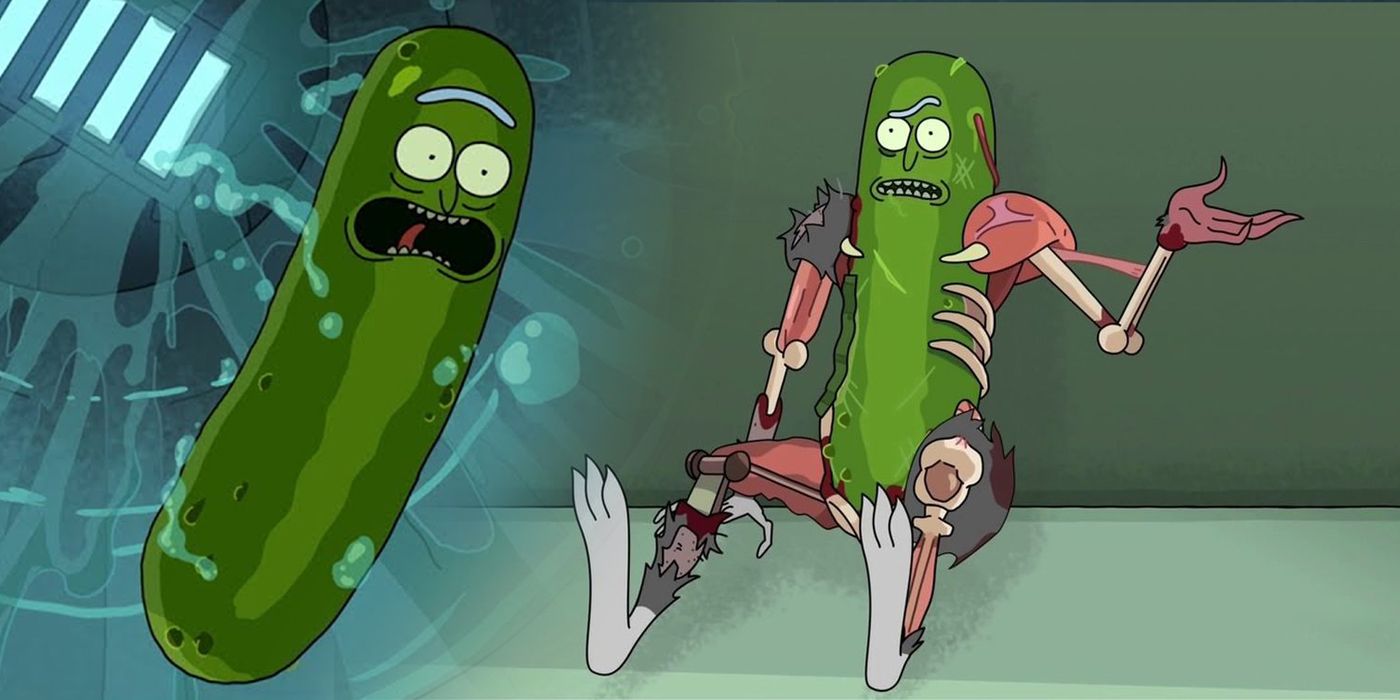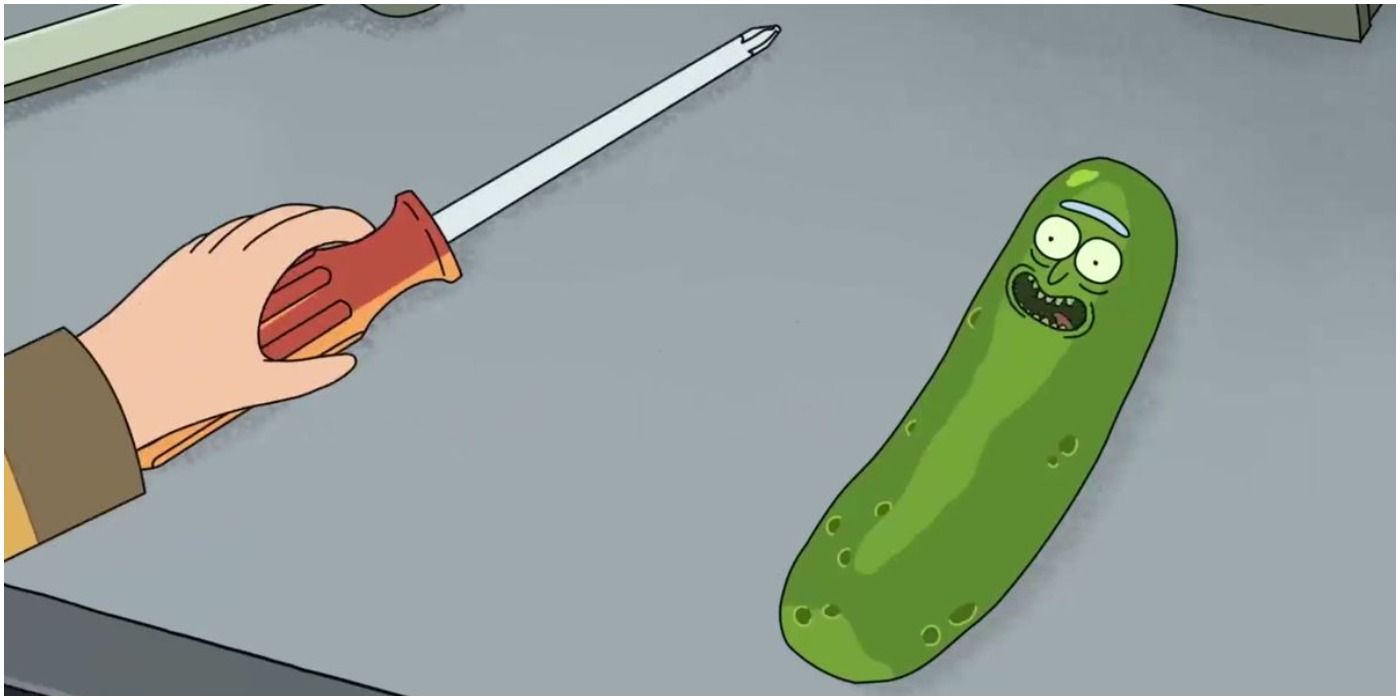The irreverent sci-fi series Rick & Morty is filled to the brim with wacky sci-fi experiments, but season 3's episode "Pickle Rick" is the most misunderstood episode of the entire series. "Pickle Rick" has similar elements to the majority of the Rick & Morty canon with a pointless experiment seemingly performed to have an out-of-this-world adventure. However, the emotional element to this episode with the family going to a therapist lets the audience see deeper into the series than ever before. The episode blends Rick (Justin Roiland) going on an absurd and gory journey while simultaneously picking apart his emotional intelligence and insecurities.
To boil the iconic Rick & Morty episode down to its core, Rick turns himself into a pickle to avoid going to a family therapist with Morty (Justin Roiland), Beth (Sarah Chalke), and Summer (Spencer Grammar). Morty is initially confused by his grandpa's choice, and asks Rick, "Why?" Rick's response is that he turns himself into a pickle "because he can" — but by the episode's end, it's clear he has a deeper motivation.
The most misunderstood element to the episode "Pickle Rick" is found in the therapist's speech at the conclusion. The speech is often lost on audiences in the fact that the episode has been utterly wild with Rick fighting off hoards of rats with an exoskeleton he built out of said rat corpses. However, in the therapist's speech, the entire morality and main argument of the series Rick & Morty is addressed. Extreme intelligence should be praised and valued, but should not be used as an excuse to reject personal accountability and responsibility. Humans have to do mundane tasks to maintain healthy relationships as well as one's own mental wellness. Although portrayed as a genius, Rick would rather crawl through a lethal sewer system, wade through rat guts, and dodge bullets than address his psyche, or the harm he's caused his family.
The Rick & Morty episode addresses overall audience expectations for Rick's behavior as well. As he tells his therapist, "I invent, transform, create, and destroy for a living. And when I don't like something about the world, I change it." A viewer expects Rick to invent something to get out of this conversation with the therapist or minimize and destroy her character with his intelligence. But the opposite happens, with Dr. Wong (Susan Sarandon) offering cutting insight into Rick's toxic habits. Although he gives his opinion on therapy, he sits there in silence, defeated by the therapist's logic.
The main point "Pickle Rick" makes is the argument that therapy and "fixing yourself" is not an adventure, and therefore Rick doesn't want to do it — but this is a bad thing. The episode is not about celebrating Rick's recklessness but highlighting the insecurities and shortcomings that motivate such behavior. Furthermore, it reinforces that intelligence should not be used as an excuse for toxic behavior, a trope Rick is guilty of over and over again. Rick's hubris often works against him, a fact he would never admit. "You're the master of your own universe, yet you're dripping with rat blood and feces," the therapist points out. The Rick & Morty episode is not just a zany adventure, but a psycho-analysis of the series as a whole.


